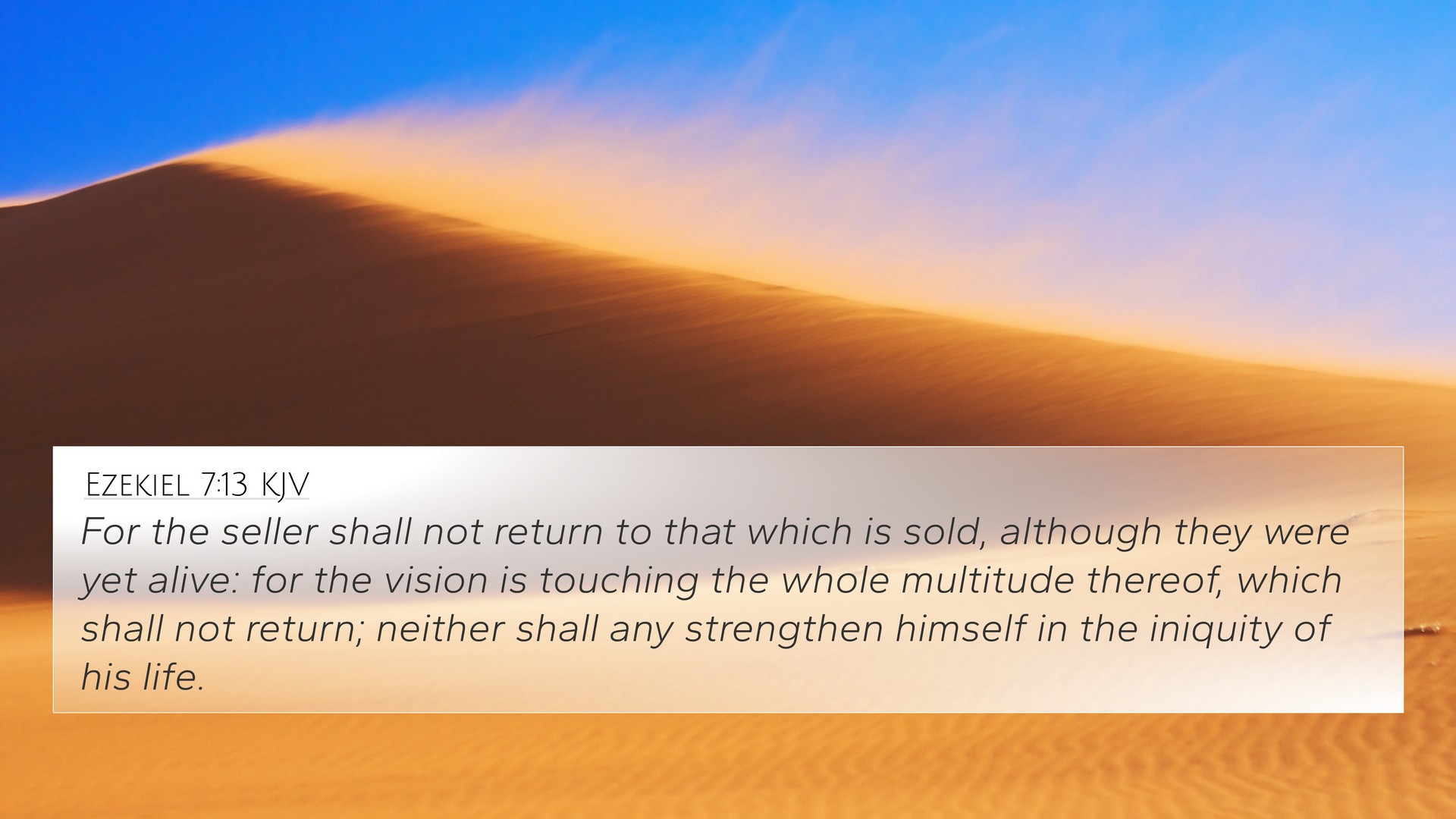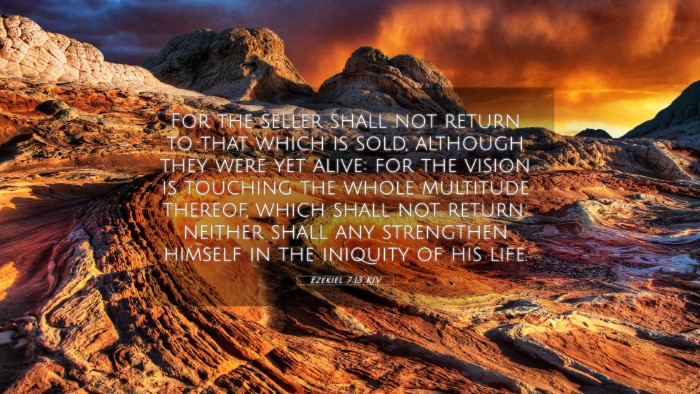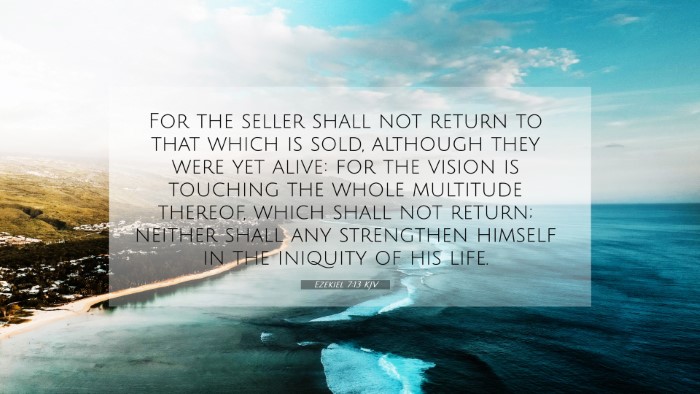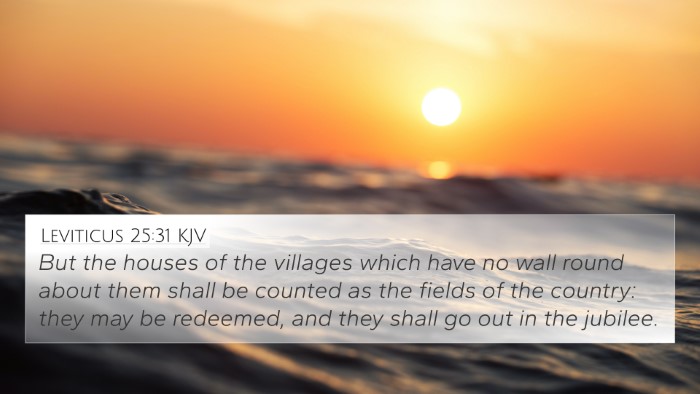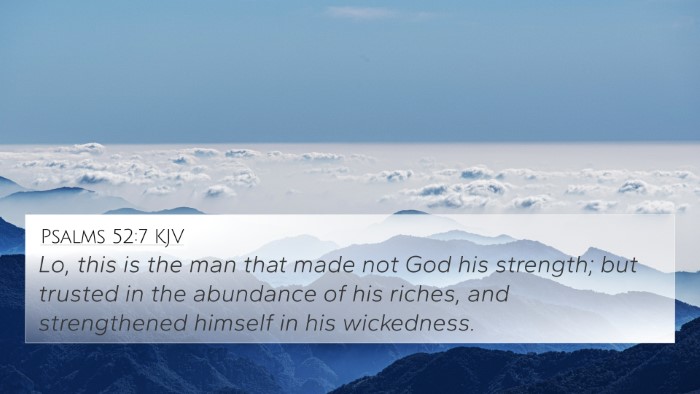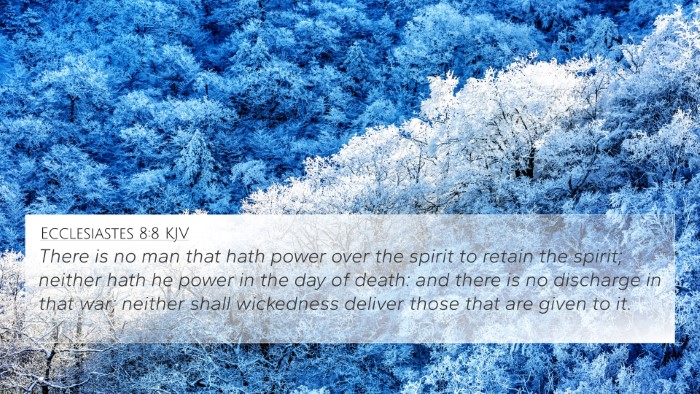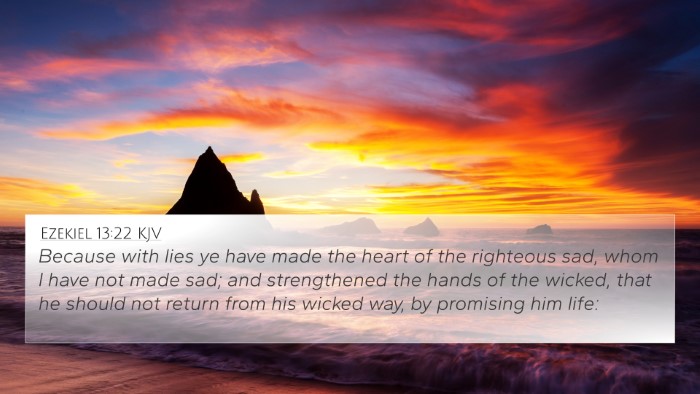Ezekiel 7:13 - Interpretation and Meaning
Ezekiel 7:13 states: "For the seller shall not return to that which is sold, although they were yet alive; for the vision is touching the whole multitude thereof, which shall not return; neither shall any strengthen himself in the iniquity of his life." This verse encapsulates the dire consequences faced by Israel during the prophetic period of Ezekiel, reflecting themes of judgment, loss, and the inescapability of divine prophecy.
Summary of Key Insights
In this verse, the prophet Ezekiel emphasizes the unavoidable reality of impending judgment upon Israel. The imagery of commerce signifies irreversible loss, suggesting that once judgment is pronounced, there is no turning back. The implications of the prophetic vision reveal not just a physical demise but a more profound spiritual calamity.
Commentary Insights
-
Matthew Henry:
Henry interprets this verse as an illustration of the futility in trying to escape the consequences of one’s actions. The economic references highlight how those who sold lives and fortunes would find their transactions meaningless in light of impending doom.
-
Albert Barnes:
Barnes suggests that the verse indicates the completeness of the divine judgment where not even the opportunity for renewal exists. The phrase "strengthen himself in the iniquity" denotes how iniquity can offer a false sense of security that will soon be shattered.
-
Adam Clarke:
Clarke interprets this verse as a profound warning to those who believe material wealth can shield them from disaster. His focus is on the finality of God’s pronouncements and the ultimate futility of human endeavors when they contravene divine intentions.
Theological Implications
The verse serves as a somber reminder of God's judgment and reflects the overarching theme of accountability. It stresses that material possessions or human achievements cannot alter the course set by divine prophecy. The lack of return for the seller signifies lost opportunities and the irreversible nature of sin's consequences.
Connections with Other Bible Verses
Understanding Ezekiel 7:13 is significantly enhanced when viewed alongside other verses that elaborate on themes of judgment and consequences. Here are several relevant cross-references:
- Amos 8:10: Represents mourning and desolation akin to the loss described in Ezekiel.
- Isaiah 5:14: Discusses how hell has enlarged itself to accommodate the multitude facing judgment.
- Jeremiah 15:10: Reflects personal sorrow over societal sin and impending doom similar to Ezekiel's lamentations.
- Lamentations 3:22-23: Touches upon the themes of mercy amidst judgment, contrasting the permanence of loss.
- Revelation 18:10: Speaks to the finality of God's judgment upon the great city Babylon, paralleling the commercial loss in Ezekiel.
- Matthew 6:19-20: Advises believers to store treasures in heaven rather than accumulating earthly wealth, echoing the futility theme.
- Ezekiel 4:17: Highlights God's intention to bring about famine, reflecting the lost hope in physical sustenance during judgment.
Practical Applications and Reflections
When examining Ezekiel 7:13, modern readers are prompted to consider their own lives in light of divine expectations. The following lessons can be drawn:
- Inescapability of Consequences: Our actions have consequences that are often irreversible.
- Value Beyond Materialism: True security and fulfillment are found beyond earthly possessions.
- Awareness of Divine Judgment: There is a need to live in accordance with God’s commands to avoid the weight of judgment.
Conclusion
Ezekiel 7:13 offers a profound insight into the nature of God's judgment and the futility of human efforts when separated from divine will. By analyzing this verse alongside its cross-references, readers can gain a deeper understanding of the interconnectedness of biblical texts, enriching their comprehension of scriptural themes and enhancing their studies through effective Bible cross-referencing tools.
In pursuing a deeper understanding through cross-referencing Biblical texts, readers can begin to identify connections not only within the Old Testament but also in the New Testament, establishing an inter-Biblical dialogue that provides a comprehensive context for each scripture.
